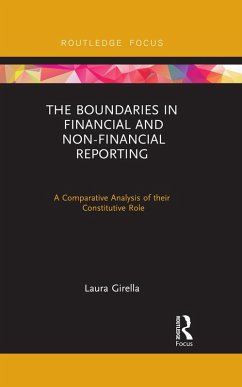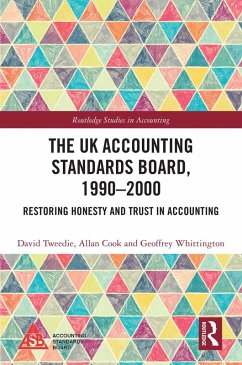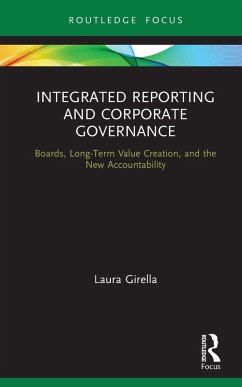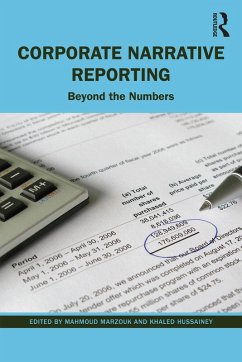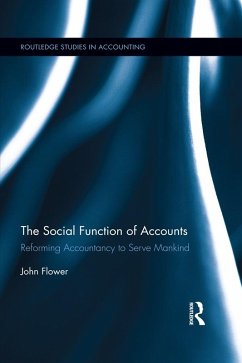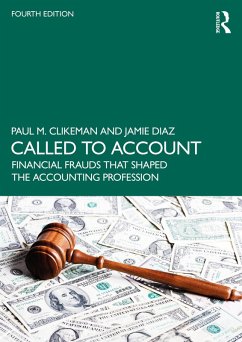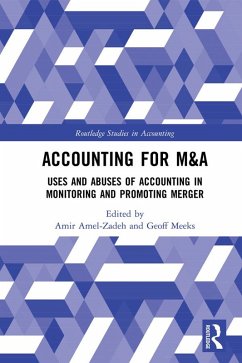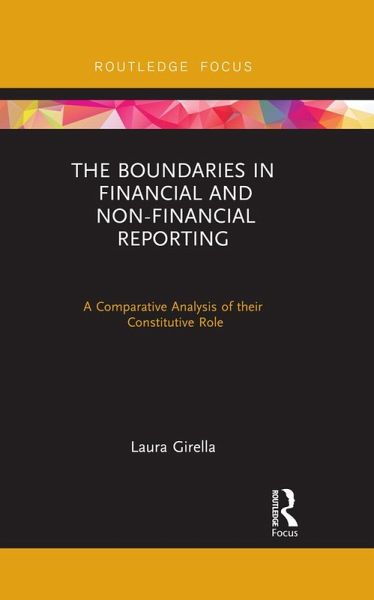
The Boundaries in Financial and Non-Financial Reporting (eBook, ePUB)
A Comparative Analysis of their Constitutive Role

PAYBACK Punkte
11 °P sammeln!
Although the need to expand the boundaries of financial reporting has been discussed since the mid-1990s, little consideration has been given to the evolution and discourses of integrated reporting of non-financial aspects. Yet by investigating how and why an organisation defines and its reporting boundaries, it is possible to understand what is truly "valued" (or not) in its business model.This innovative book reviews the guidelines and frameworks from the major relevant international organisations including: the International Accounting Standards Board, Global Reporting Initiative, Sustainab...
Although the need to expand the boundaries of financial reporting has been discussed since the mid-1990s, little consideration has been given to the evolution and discourses of integrated reporting of non-financial aspects. Yet by investigating how and why an organisation defines and its reporting boundaries, it is possible to understand what is truly "valued" (or not) in its business model.
This innovative book reviews the guidelines and frameworks from the major relevant international organisations including: the International Accounting Standards Board, Global Reporting Initiative, Sustainability Accounting Standards Board, International Integrated Reporting Council, Carbon Disclosure Standards Board, and the World Intellectual Capital Initiative, and analyses their development and impact on the boundaries of financial and non-financial reporting.
Illustrated with case studies and interviews with representatives of these organisations, this concise volume makes a significant contribution to the future of reporting theory and practice. It will be of great interest to advanced students, researchers, practitioners and policy makers.
This innovative book reviews the guidelines and frameworks from the major relevant international organisations including: the International Accounting Standards Board, Global Reporting Initiative, Sustainability Accounting Standards Board, International Integrated Reporting Council, Carbon Disclosure Standards Board, and the World Intellectual Capital Initiative, and analyses their development and impact on the boundaries of financial and non-financial reporting.
Illustrated with case studies and interviews with representatives of these organisations, this concise volume makes a significant contribution to the future of reporting theory and practice. It will be of great interest to advanced students, researchers, practitioners and policy makers.
Dieser Download kann aus rechtlichen Gründen nur mit Rechnungsadresse in A, B, BG, CY, CZ, D, DK, EW, E, FIN, F, GR, HR, H, IRL, I, LT, L, LR, M, NL, PL, P, R, S, SLO, SK ausgeliefert werden.




